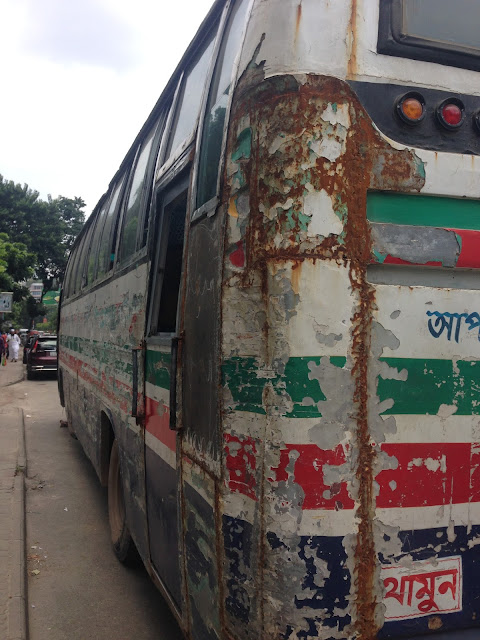It is a local custom here to flee a traffic accident, especially if you caused it.
"The best is to offer money. And to leave as soon as possible. People can become very angry and you can get hurt, badly", was the advice from a local driver.
It sounds strange but is unfortunately very true.
The justice system in Bangladesh is about as functional and reliable as a broken umbrella.
Thus, the random crowd in the streets acts as an instant street court, condems and punishes on the spot with eye for eye -principle.
The angry crowd's speed trial, verdict and sentence is history when the police eventually arrive.
Unfortunately, the angry-crowd-justice applies to many other situations, too.
"The angry people beat the man severely and left him dead on the spot", is a typical sentence almost daily in the newspapers.
For example, last weekend a youth was beaten to death allegedly for stealing money from a mosque.
A week ago four alleged robbers were killed in a mass beating while they were trying to snatch a motorcycle.
In July 12-year-old boy was killed when bus ran him over in Dhaka.
Shortly after the accident, an angry mob set the bus on fire and beat up the driver. The driver died later at a hospital.
Lesson learnt: I refuse to sit next to my husband when he is driving and will never even dream of driving myself here.




































